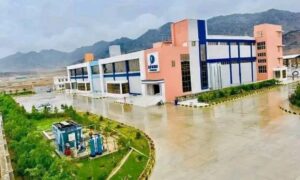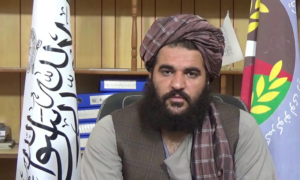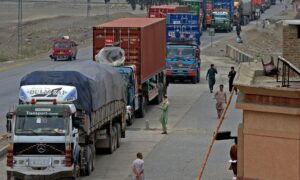Business
Economy ministry to help strengthen Afghan carpet industry

The Ministry of Economy says it supports the carpet industry and intends to provide more facilities for the sector.
During an event on Sunday, a number of officials said that supporting the carpet industry is the priority of the Islamic Emirate and that they are trying to use domestic products, especially carpets, to counter the excessive import of foreign products.
Abdul Latif Nazari, deputy economy minister, said that the granting of small loans by a private bank to carpet manufacturers is an important step to support the carpet industry.
“The policy of the system (IEA) is to support domestic products, the carpet industry can play a prominent and graceful role in increasing our domestic productions along with other products,” said Nazari.
Qudratullah Jamal, deputy minister of industry and commerce, also said that the challenges and problems facing the carpet industry in the country will be solved and he emphasized that this ministry is one of the main supporters of the carpet industry in the country.
Meanwhile, some carpet producers in the country say that this year carpet production has increased by 40 percent because more people are engaged in carpet weaving this year.
“The amount of production has increased, but unfortunately, the challenges of exporting carpets abroad have caused us problems,” said Ismatullah, a carpet manufacturer.
Business
$23 million pharmaceutical company opens in Kabul
The Islamic Emirate officials also stated that while they fully cooperate with pharmaceutical companies, these manufacturers need to produce drugs that meet international standards.
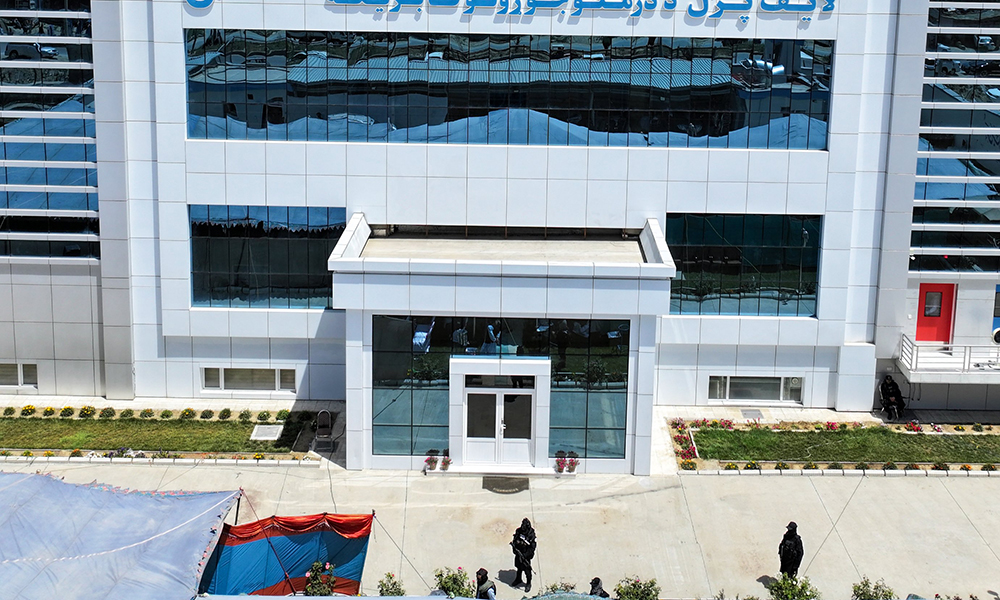
A new pharmaceutical company, costing $20 million, was officially opened on Thursday in Kabul in the presence of Islamic Emirate leaders, including Deputy Prime Minister for Economic Affairs Mullah Abdul Ghani Baradar.
The new company will reportedly manufacture 50 different types of drugs once fully operational.
Addressing the launch ceremony on Thursday, Baradar outlined the importance of quality in terms of pharmaceuticals and said poor-quality drugs threaten lives while good-quality medicines can save lives.
Baradar also pointed out that more manufacturing companies like this will help grow the country’s economy.
He once again called on investors, both in the country and abroad, to help in the reconstruction and development of the country and start businesses. He also said the way has been paved for them to invest and that they should make use of the opportunities available.
Health officials meanwhile said that currently there are 77 pharmaceutical companies in the country and that serious efforts are being made to make the country self-sufficient in this regard.
The Islamic Emirate officials also stated that while they fully cooperate with pharmaceutical companies, these manufacturers need to produce drugs that meet international standards.
Related Stories:
New medicines manufacturing company established in Nangarhar
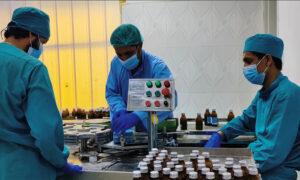
Kandahar officials inaugurate $50 million pharmaceutical company
Business
Sugar exports to Afghanistan resume after four year break
Islamabad banned the export of sugar to Afghanistan four years ago to address shortages and control prices in the country.
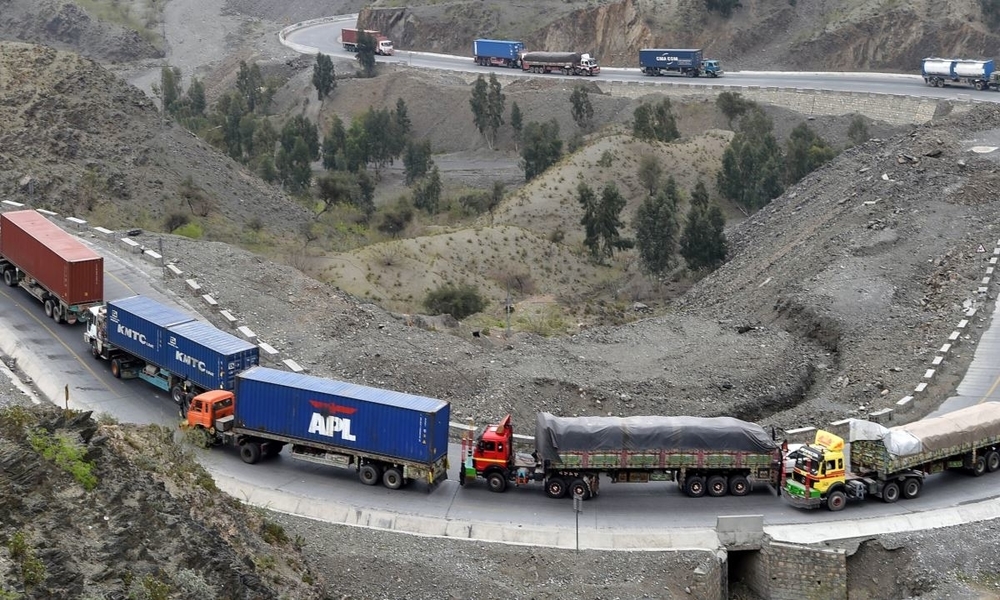
Sugar exports from Pakistan to Afghanistan resumed this week after a four-year suspension, with over 400 vehicles crossing the Torkham border in the last four days.
According to Pakistan sources, Islamabad recently agreed to the export of 150,000 tons of sugar to Afghanistan, setting an August 15 deadline for the completion of the shipment process.
Customs clearing agents at Torkham said around 100 vehicles, each carrying 33 tons of sugar, crossed into Afghanistan four days ago and more thereafter.
Islamabad banned the export of sugar to Afghanistan four years ago to address shortages and control prices in the country.
Related Stories:
Volume of imports from Pakistan has declined: official
Import, export volumes total $7.5 billion in 1st nine months of this solar year
Business
Chinese keen on investing in Afghanistan’s solar power sector
At the same time, the deputy minister welcomed their interest and stated that Afghanistan is a place of opportunities for investment and that the ministry is ready to cooperate.
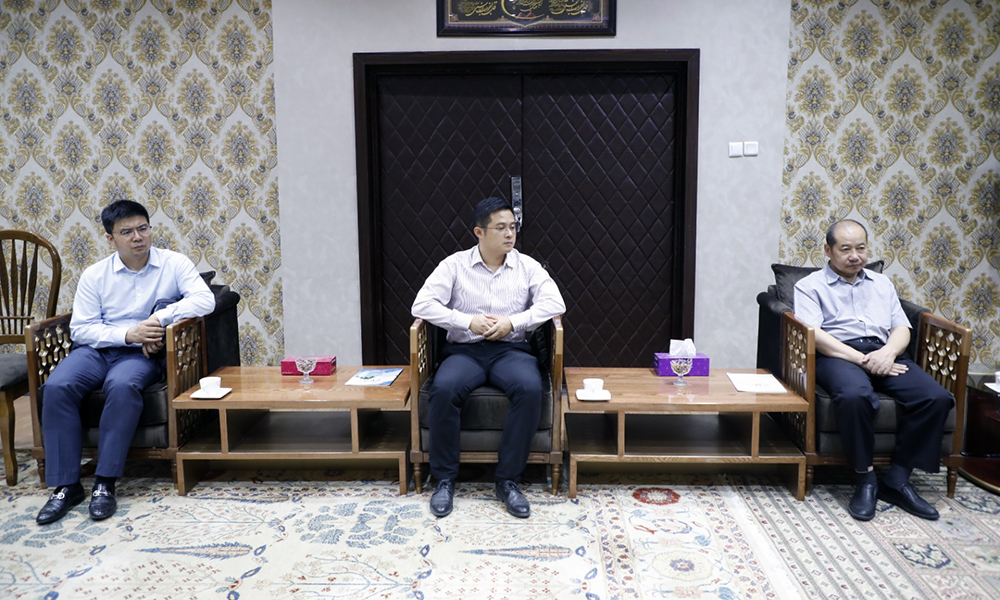
The Ministry of Industry and Commerce says that Ahmadullah Zahid, deputy minister, met with a number of Chinese investors in his office on Tuesday.
According to a statement issued by the ministry, Ehsanullah Shahab, the head of special economic zones, was also present in this meeting, where investors from China expressed their interest in investing in solar power generation and agriculture technology sectors.
At the same time, the deputy minister welcomed their interest and stated that Afghanistan is a place of opportunities for investment and that the ministry is ready to cooperate.
Related Stories:
Chinese keen to invest in Panjshir-Kabul water conduit project

120 Chinese companies held investment talks with IEA since takeover
-

 Sport4 days ago
Sport4 days agoOlympics finally here; What you need to know
-

 Latest News5 days ago
Latest News5 days agoOCHA reports 110 die in landmine explosions in Afghanistan every month
-

 Regional5 days ago
Regional5 days agoChina braces for twin tropical cyclones after deadly flash floods
-

 Health4 days ago
Health4 days agoHealth partners provide services 589,205 people in Afghanistan in last month
-

 Latest News4 days ago
Latest News4 days agoAfghanistan’s Hajj ministry confirms death of 27 pilgrims in Mecca and Medina
-

 Business5 days ago
Business5 days agoConference on Islamic microfinance kicks off in Kabul
-

 Sport4 days ago
Sport4 days agoACB proposes ODI fixtures against top-tiered teams
-
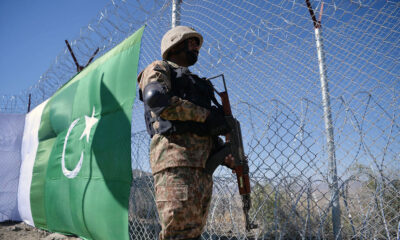
 Latest News4 days ago
Latest News4 days agoIslamabad claims three terrorists killed at Pakistan-Afghanistan border














